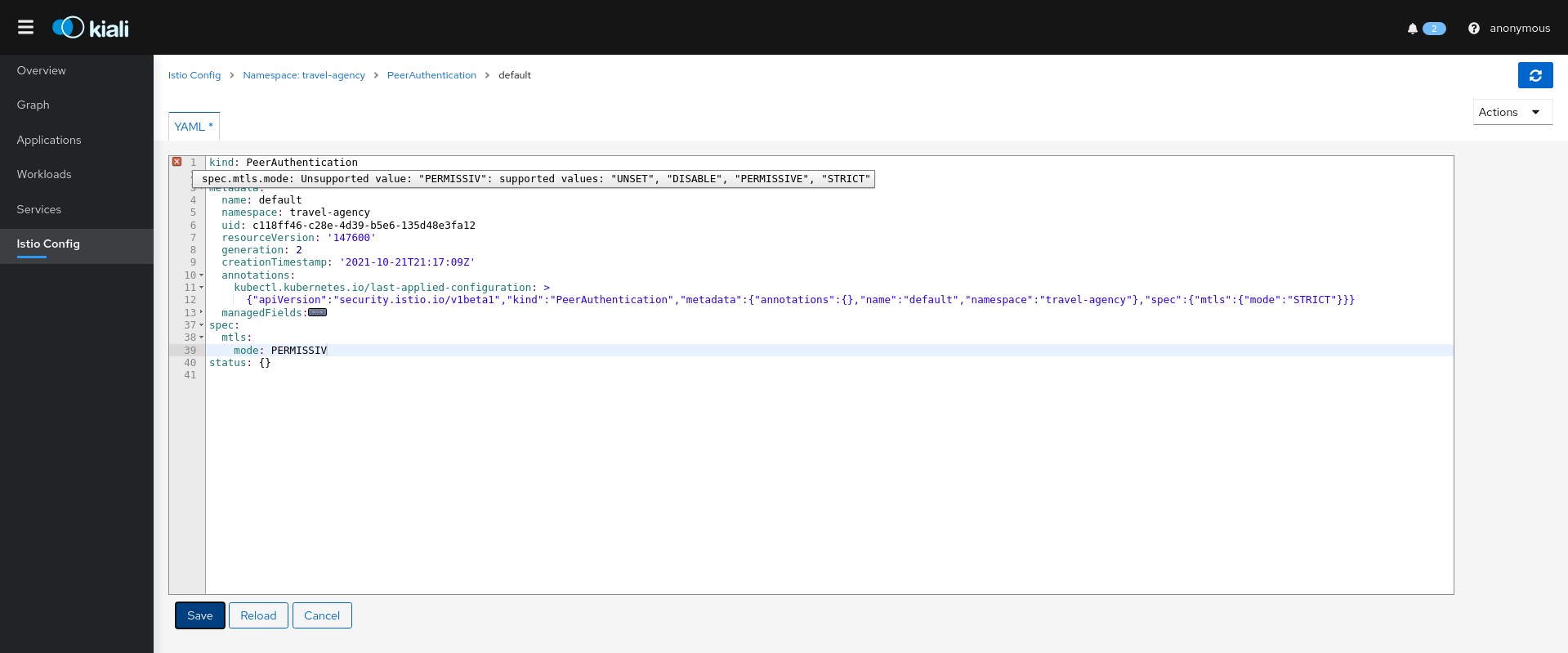Security
Kiali gives support to better understand how mTLS is used in Istio meshes. Find those helpers in the Mesh page, Traffic Graph, Overview Page, and specific validations.
Mesh indicator
At the right panel of the Istio Control Plane from the Mesh page, Kiali shows a lock when the mesh has enabled mTLS for the whole service mesh. It means that all the communications in the mesh uses mTLS.
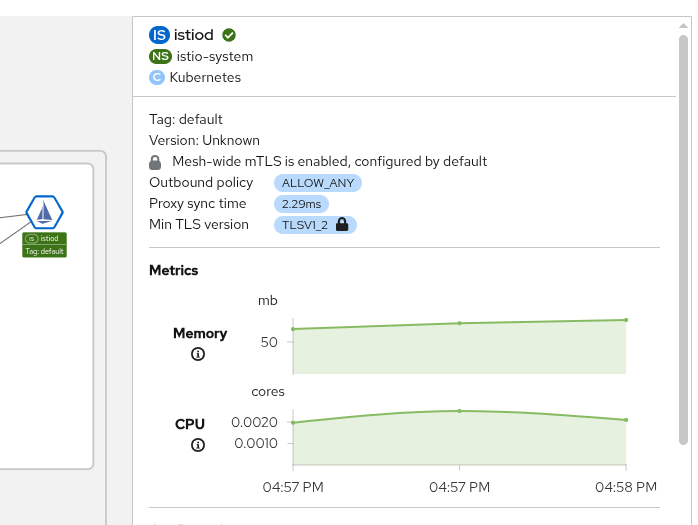
Kiali shows a hollow lock when either the mesh is configured in PERMISSIVE mode or there is a misconfiguration in the mesh-wide mTLS configuration.
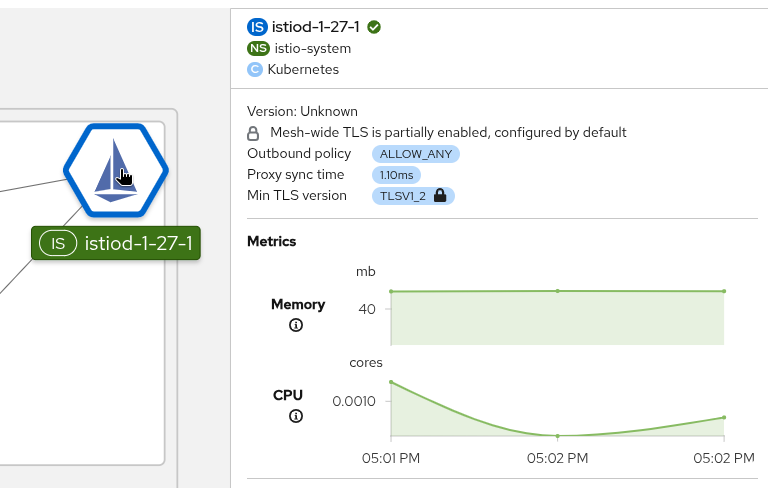
Overview locks
The overview page shows all the available namespaces with aggregated data. Besides the health and validations, Kiali shows also the mTLS status at namespace-wide. Similar to the Mesh page, it shows a lock when strict mTLS is enabled or a hollow lock when permissive.
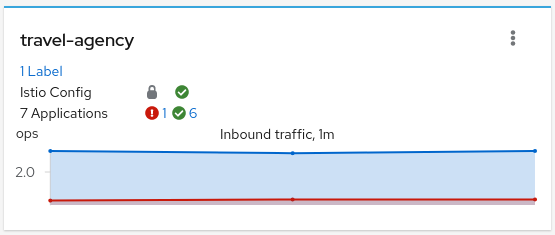
Graph
The mTLS method is used to establish communication between microservices. In the graph, Kiali has the option to show which edges are using mTLS and with what percentage during the selected period. When an edge shows a lock icon it means at least one request with mTLS enabled is present. In case there are both mTLS and non-mTLS requests, the side-panel will show the percentage of requests using mTLS.
Enable the option in the Display dropdown, select the security badge.
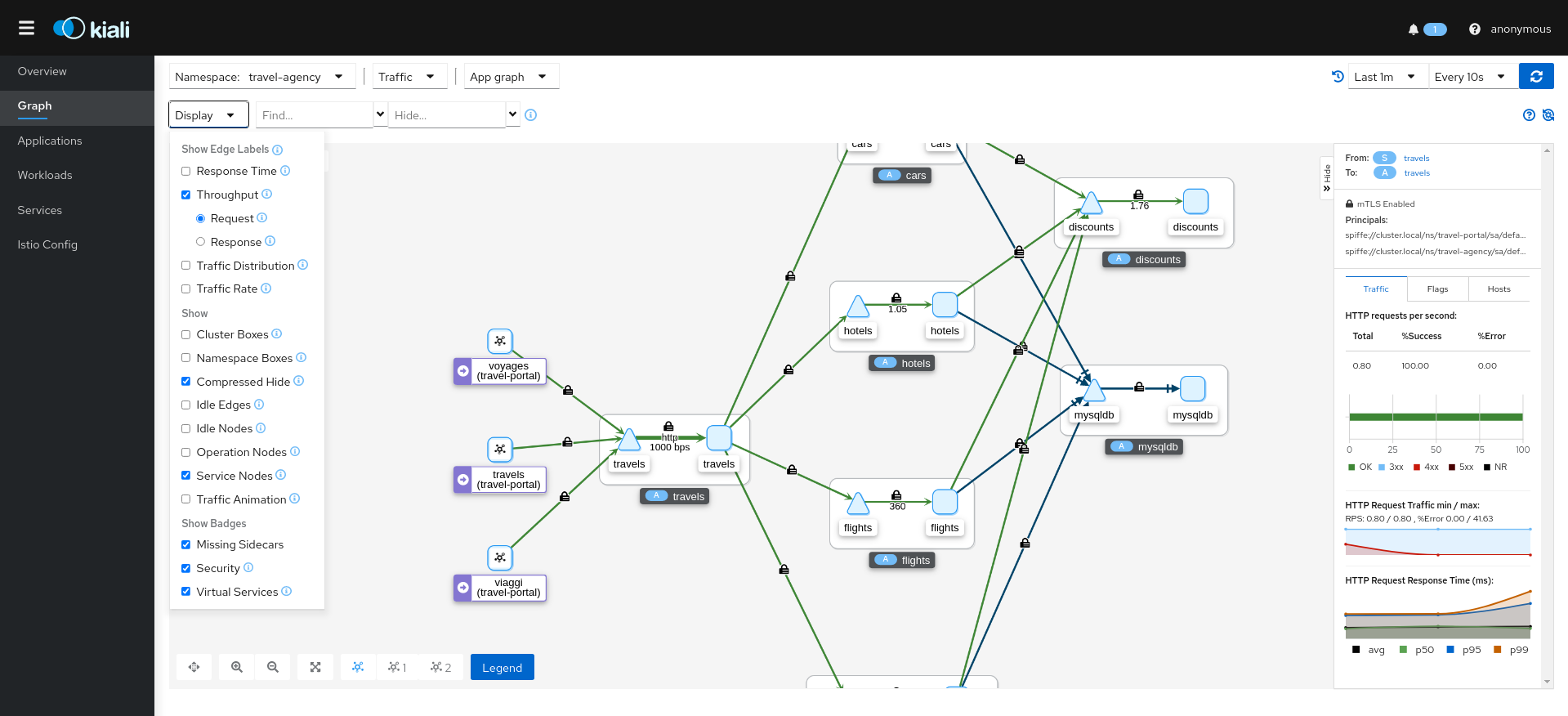
Validations
Kiali has different validations to help troubleshoot configurations related to mTLS such as DestinationRules and PeerAuthentications.
